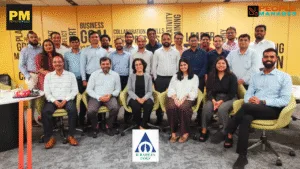POSH Act | Rape, Continuous Molestation & Harassment Are Continuing Misconduct, Fresh Cause Of Action Arises Every Day Till Redressal: Madras HC
Justice Bharatha Chakravarthy observed that in some cases, the injury did not cease with forced physical intercourse but continued every day when the victim was compelled to keep mute and confront the molester at work-POSH Act.

In the case of R Mohanakrishnan v/s The Deputy Inspector General of Police and Others, Case No: W.P. No.10707 of 2024, the Madras High Court recently ruled that an allegation of rape or continuous molestation and harassment, as opposed to a lewd inappropriate remark, is a continuing misconduct, and every day until the situation is resolved, a new cause of action arises under the POSH Act.
The case is represented under POSH Act as follows:
Counsel for the Petitioner: Mr.S.Sivakumar
Counsel for the Respondent: Mr. Stalin Abhimanyu, Additional Government Pleader
Justice Bharatha Chakravarthy observed that in some cases, the injury did not cease with forced physical intercourse but continued every day when the victim was compelled to keep mute and confront the molester at work. The court observed that this harm was exacerbated by a fear of victimization, resulting in continual sexual harassment under the POSH Act.
“When the offense complained of is a serious one having the effect of causing grave mental trauma and stress to the victim, pushing her to a dilemma not to reveal or complaint due to the fear of secondary and tertiary victimization, on the other hand, she is also unable to withstand, swallow, or suppress the same, then that state of the victim fits the definition of undergoing continuous sexual harassment,” the judge stated.
The court said that sexual harassment [ POSH Act ] caused significant injury to women’s physical and emotional wellbeing. The court said that the mental degeneration frequently comprised despair, self-doubt, disengagement from work, fear of being characterized as a troublemaker, damaging the organization’s name, and so on. The court further stated that the victims were concerned about being blamed by their company and society for the harassment and victimization.
The court was hearing a case brought by Mohanakrishnan, Superintendent of Police, challenging an order issued by the Internal Complaints Committee. The ICC had recommended that Mohanakrishnan face disciplinary action and be suspended until the departmental proceedings were completed.
Mohanakrishnan contended that the complaint was time-barred because it was not filed within three months of the alleged sexual harassment [ POSH Act ] occurrence, as required by Section 9 of the Prevention of Sexual Harassment of Women in the Workplace Act. He claimed that while the assault was believed to have occurred in 2018, the complaint was filed in 2022.
He went on to say that the committee violated natural justice principles by not allowing him to cross-examine the victim or the witness. He further claimed that he was not given a copy of the complaint [ POSH Act ] and only received it after insistence.
The state, on the other hand, said that Mohanakrishnan had harassed several female employees. It was argued that sexual harassment should be considered a continual offense, rendering the argument of limitation unworkable. It was also said that copies of the complaint had been served on Mohanakrishnan, and that he was only barred from directly cross-examining the victim and witnesses [ POSH Act ] owing to the sensitivity of the situation.
The court agreed with both the submission and Mohanakrishnan’s arguments. The court also noted that Mohanakrishnan’s other arguments, such as failing to provide a copy of the complaint [ POSH Act ] , failing to act on the report within a reasonable time frame, and so on, were only timelines intended to ensure prompt action, and not excuses for the delinquent to avoid punishment. The court made it clear that the criminal must defend the charges on their grounds.
However, the court ruled that Mohanakrishnan should be given the right to cross-examine the witnesses. While the court acknowledged that the committee was correct in avoiding exposing the victim to the criminal, it also stated that, at the very least, the delinquent must be allowed to ask direct questions for cross-examination of the witnesses.
As a result, the court sent the case to the ICC [ POSH Act ] for further investigation and asked the ICC to conclude the investigation within 60 days by conducting day-to-day procedures to the greatest extent practicable. The court further stated that, following receipt of the ICC’s report, the disciplinary committee would take steps to conclude the disciplinary procedures.
Stay tuned, to PropleManager.co.in for further updates on the evolving workplace paradigm.
Value our content… contribute towards our growth. Even a small contribution per month would be of great help to us. Since our establishment, we have been serving the industry through daily news and updates.
Our content is free for all, and we plan to keep it that way
Support the People Manager. Pay Here
- K Raheja Corp Launches ‘I-Lead’ to Develop Early Managers into Effective People Leaders Across its Group Companies - July 24, 2025
- Eastman Auto & Power Appoints Tilak Kapoor as President Human Resources - July 23, 2025
- Employer can’t put Defamatory Remarks In Termination Letter which cause reputational harm to professional standing : Delhi High Court - July 23, 2025







